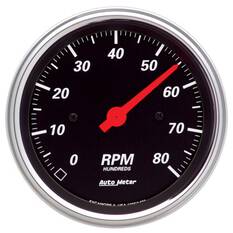Secret Reasons Why Having a Tachometer Is Necessary for Preserving Engine Wellness and Performance
This simple yet essential instrument plays a crucial function in the upkeep of an engine's wellness and effectiveness. By providing real-time information on engine speed and RPM degrees, a tachometer uses important understandings that directly impact the efficiency and long life of the engine. Allow's explore the key factors behind its critical duty in preserving engine health and effectiveness.
Preventing Engine Over-Revving

To secure the engine from potential damage, it is critical to carry out measures that stop over-revving, a technique that can cause pricey repair work and minimized engine life-span. Over-revving happens when the engine's rotational speed surpasses the maximum limit established by the producer, causing undue stress and anxiety on inner components such as pistons, shutoffs, and attaching rods. This extreme pressure can result in mechanical failures, consisting of curved valves, harmed pistons, and also catastrophic engine failure.
A rev limiter is a tool that controls the maximum RPM (revolutions per minute) of the engine by either reducing off fuel circulation or spark to the engine when the pre-set restriction is reached. Regular upkeep checks to ensure the engine is in ideal problem can likewise aid in protecting against over-revving events and lengthening the engine's life-span.
Enhancing Gas Usage
Effective gas usage plays a vital function in making the most of the performance and sustainability of an engine. tachometer. Maximizing fuel intake not only helps in lowering functional expenses however also decreases the ecological effect of car emissions. By utilizing a tachometer to check engine rate and change driving habits as necessary, motorists can accomplish better gas performance
Preserving a steady rate and preventing sudden velocities and slowdowns can considerably boost gas economy. In addition, appropriate gear option based on the tachometer analyses makes sure that the engine operates within its optimum range, bring about a lot more efficient gas combustion.
Consistently keeping an eye on the tachometer can also aid identify any kind of inadequacies or mechanical concerns that might be affecting gas consumption. As an example, a sudden rise in fuel use without a corresponding modification in driving habits might suggest a problem that needs focus.
Tracking Engine Health And Wellness
Checking engine wellness is important for making certain optimum efficiency and long life of the vehicle. By utilizing a tachometer to keep track of engine speed, chauffeurs can these details discover abnormalities that might suggest possible problems with the engine. A tachometer supplies real-time information on engine changes per minute (RPM), enabling vehicle drivers to recognize any kind of unusual spikes or decrease in RPM that might indicate issues such as misfires, worn-out elements, or engine overheating.

On a regular basis keeping track of engine health through making use of a tachometer makes it possible for vehicle drivers to resolve concerns immediately prior to they intensify and trigger significant damage. Spotting a decrease in RPM can suggest fuel distribution issues or a clogged air filter, while an abrupt rise in RPM may aim to concerns with the transmission or exhaust system. By remaining vigilant and receptive to modifications in engine performance, vehicle drivers can stop costly repairs and make sure the general health and performance of their car.
Extending Engine Life-span
Guaranteeing the longevity of an engine needs persistent upkeep methods and conscientious tracking of crucial performance indications. Extending an engine's life-span is important for minimizing general lorry maintenance prices and avoiding unforeseen breakdowns. A tachometer plays a considerable function in this aspect by supplying real-time data on engine speed, permitting chauffeurs and technicians to make informed choices to stop excessive damage.

Furthermore, normal maintenance based on tachometer analyses, such as prompt oil changes and ignition system substitutes, can significantly add to prolonging the engine's long life. Overall, integrating a tachometer right into regular engine surveillance practices is vital for maintaining the engine's health and efficiency over the long term.
Conserving Cash on Services
To effectively manage car upkeep prices and minimize unforeseen malfunctions, leveraging the insights given by a tachometer can be instrumental check out this site in saving cash on repairs. A tachometer helps in checking the engine's RPM (revolutions per min), enabling drivers to run within the suggested variety. By remaining within these optimum RPM degrees, excessive stress on the engine can be prevented, lowering the possibility of expensive repair work because of straining the engine (tachometer). Additionally, a tachometer can notify vehicle drivers to possible concerns such as engine misfires or stopping working elements, permitting early intervention before these troubles rise and cause a lot more considerable-- and expensive-- repairs.
Additionally, by utilizing the information from a tachometer to practice smooth acceleration and slowdown, chauffeurs can prolong the lifespan of their vehicle's parts, inevitably conserving cash on maintenance and substitutes. In general, the insights supplied by a tachometer empower vehicle drivers to make educated decisions that can stop unnecessary damage on the engine, causing significant expense savings over time.
Conclusion
In verdict, a tachometer plays an important role in preserving engine health and performance by avoiding over-revving, maximizing fuel usage, monitoring engine wellness, extending engine life expectancy, and conserving money on fixings. It is a vital device for guaranteeing that the engine runs within secure limitations and executes at its best, eventually adding to the longevity and general efficiency of the car.